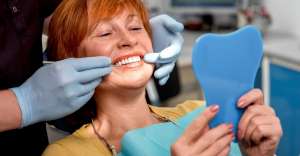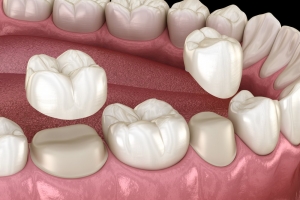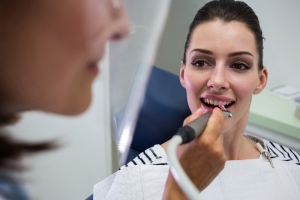A bright, healthy smile is a universal symbol of well-being, and maintaining optimal dental health is a lifelong endeavor. From childhood to the golden years, individuals of every age can benefit from proactive dental care practices. In this guide, we'll explore tips for maintaining optimal dental health at every stage of life, with a nod to the expertise provided by organizations like Dublin Dental Care Ohio.
Childhood (0-12 Years):
Establishing good oral hygiene habits early in life is crucial for a lifetime of healthy smiles.
- Start Early: Begin cleaning your baby's gums with a soft cloth, and transition to a small, soft-bristled toothbrush once teeth emerge.
- Teach Proper Brushing: Encourage proper brushing techniques as soon as children can hold a toothbrush. Use a pea-sized amount of fluoride toothpaste for children aged 3 and older.
- Regular Dental Check-ups: Schedule the first dental visit by the child's first birthday or when the first tooth emerges. Regular check-ups with a pediatric dentist help monitor oral development.
Adolescence (13-19 Years):
Teenagers face unique oral health challenges, and preventive measures are crucial during these formative years.
- Orthodontic Care: Address orthodontic issues early to ensure proper tooth alignment. Braces or other orthodontic treatments may be recommended.
- Emphasize Oral Hygiene: Reinforce the importance of regular brushing, flossing, and using mouthwash. Teens should continue regular dental check-ups to monitor oral health.
- Limit Sugary Foods: Adolescents often consume sugary snacks and beverages. Encourage healthy eating habits and limit the intake of sugary items to protect teeth from decay.
Adulthood (20-59 Years):
Maintaining optimal dental health in adulthood involves consistency and addressing lifestyle factors.
- Regular Check-ups: Schedule bi-annual dental check-ups and cleanings. This helps detect and address potential issues before they become major problems.
- Balanced Diet: Consume a balanced diet rich in vitamins and minerals. Calcium and vitamin D are particularly important for maintaining strong teeth.
- Avoid Tobacco and Limit Alcohol: Smoking and excessive alcohol consumption can contribute to oral health problems. Quitting smoking and moderating alcohol intake are beneficial for both oral and overall health.
- Stress Management: Chronic stress can lead to teeth grinding (bruxism). Managing stress through relaxation techniques can help protect teeth from unnecessary wear.
Seniors (60+ Years):
As individuals age, dental health becomes increasingly important for overall well-being.
- Regular Dental Visits: Continue regular dental check-ups, and discuss any changes in oral health with the dentist. Addressing issues promptly is crucial for seniors.
- Oral Care Products for Seniors: Consider using oral care products designed for seniors, such as softer toothbrushes and specialized mouthwashes.
- Dry Mouth Prevention: Stay hydrated to prevent dry mouth, a common issue among seniors. Dry mouth can contribute to tooth decay, so adequate saliva flow is essential.
- Denture Care: If using dentures, follow proper cleaning and care instructions. Regular check-ups can ensure that dentures fit well and address any concerns.
- Maintain Healthy Habits: Continue to prioritize a balanced diet, limit sugary foods, and practice good oral hygiene habits.
Conclusion:
Maintaining optimal dental health is a lifelong commitment that evolves with each stage of life. By following these tips and seeking professional guidance through regular check-ups with organizations, individuals can enjoy a lifetime of bright, healthy smiles. Consistency, preventive measures, and a proactive approach to oral care contribute to overall well-being and a confident smile at every age.






